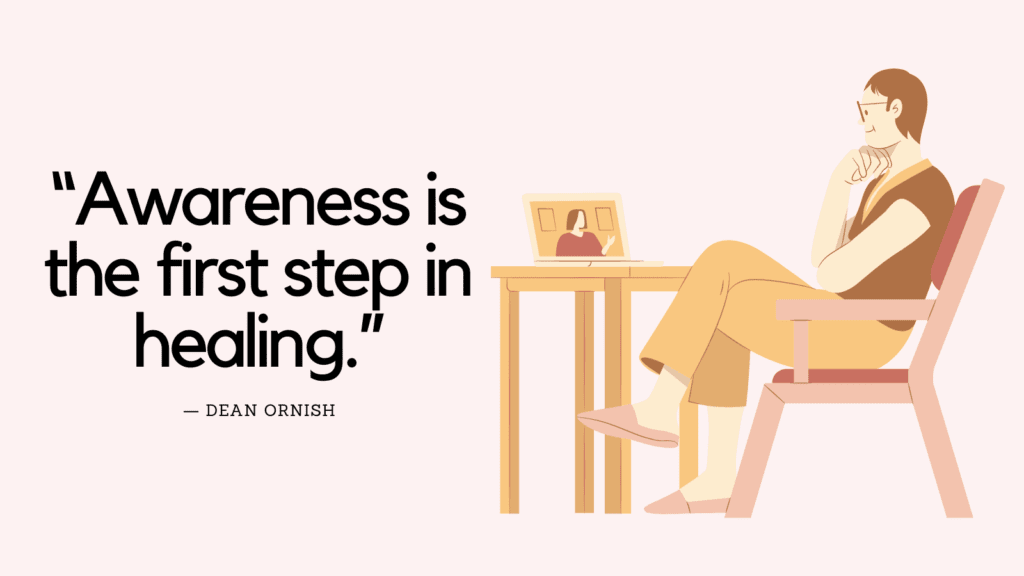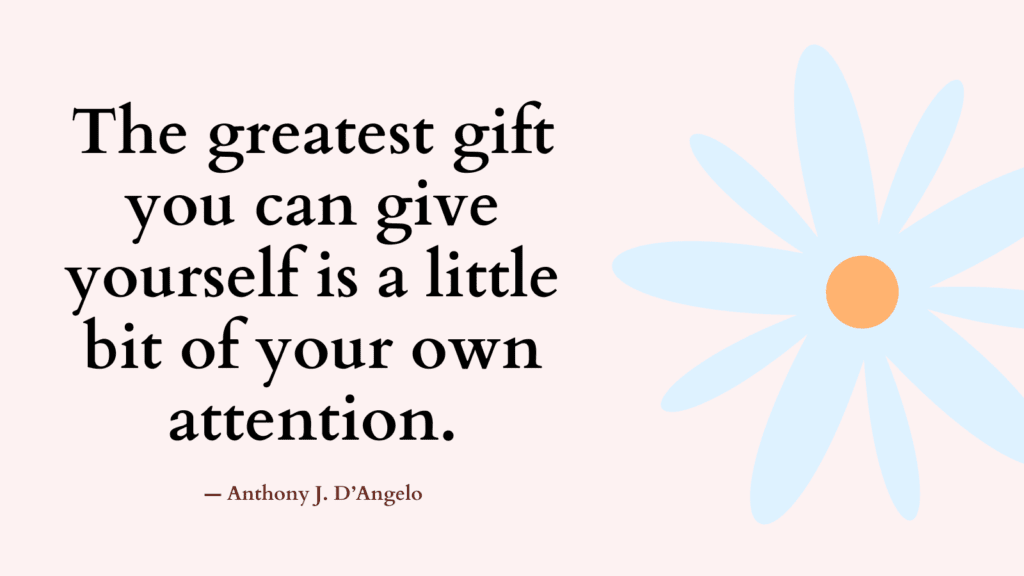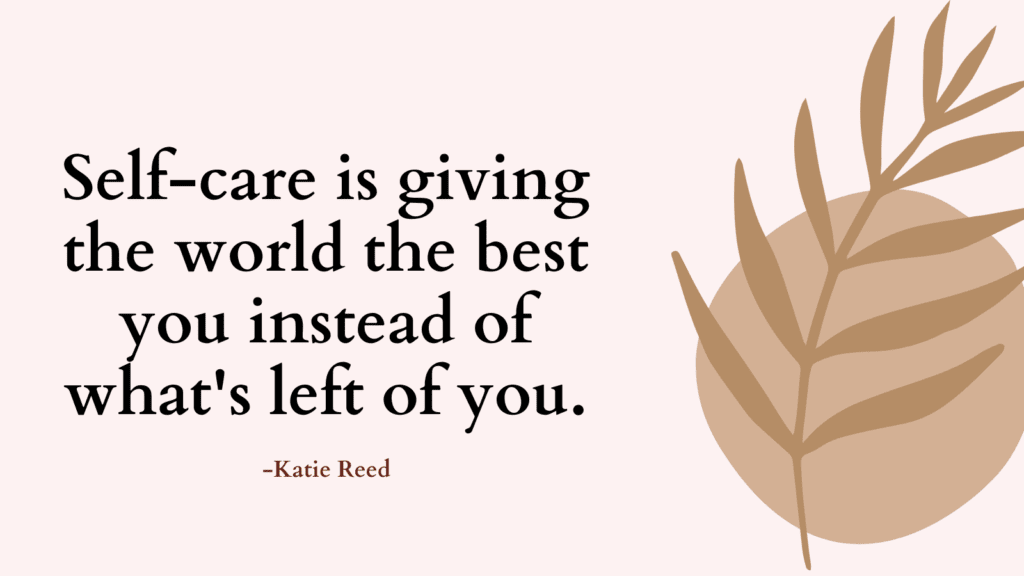Contrary to popular belief, therapy isn’t just for those who are struggling with debilitating mental illness.
“Do I need therapy quiz” will help you find out if you need therapy.
What Is Psychotherapy?
Psychotherapy or talk therapy is a way to help people eliminate or control distressing psychological symptoms and increase well-being.
Therapy can be beneficial for anyone who is experiencing difficult emotions or wants to connect with themselves.
Therapy is a safe, non-judgmental place to open up about your experiences and learn healthy coping skills to handle life challenges.
Related: Adult Therapy Online [20% Discount – CBT Online Therapy]
Types of Psychotherapy
There are many form of psychotherapy. The following are some common ones:
- Psychodynamic therapy (emphasizes how certain experiences affect one’s feelings and choices and helps one acknowledge and understand repressed emotions so they can resolve internal psychological conflicts)
- Cognitive Behavioral Therapy (CBT) (focuses on helping people change thought patterns and unhealthy behaviors to improve wellbeing)
- Dialectical behavior therapy (DBT) (A form of cognitive behavior therapy that aims to give people the skills to regulate their emotions, improve relationships, and live mindfully)
Related: Why Is Trauma Therapy So Hard? (+Best Trauma Healing Exercises To Support Your Recovery)
Do I Need Therapy Quiz
While anyone can benefit from therapy, the following questions represent critical signs you need therapy:
Results
#1. Do you often find it difficult to regulate or control your difficult emotions?
#2. Do you often struggle to build or maintain close relationships?
#3. Do you have a history of physical or emotional abuse or any other trauma that you haven’t fully recovered from?
#4. Have you experiencing a recent major loss and find it difficult to process your loss?
#5. Are you using addictions (substances or activities) to cope with difficult emotions?
#6. Do you often experience feelings of inner emptiness and find yourself no longer enjoying activities you typically did?
#7. Are you experiencing a substantial decrease in performance at work or school?
#8. Have you been eating or sleeping either less or more than usual for some time?
#9. Do you want to make a change but don’t know where to start?
#10. Have you been experiencing physical symptoms like headaches, fatigue, muscle tension and pain, cardiovascular reactivity, etc. that cannot be explained by a physical illness?
We will not sell your information. All results are kept confidential.
Note: This online screening is not a definitive tool. It will not conclusively guarantee that you will benefit from therapy.
Results
The questions above represent common signs you may need therapy. If you answered yes to most of these questions, then you may need to see a therapist.
Related: How to Heal From Childhood Trauma? 9 Scientifically Proven Trauma Therapy Approaches to Recover From Complex Trauma
FREE Therapy Guide
How to Start Therapy?
Starting therapy can feel overwhelming, but here are some steps to help you begin your therapeutic journey:
1. Research and Find a Therapist
Look for licensed therapists in your area who specialize in the specific concerns you want to address.
You can check online directories, ask for recommendations from trusted individuals, or consult with your primary care physician.
2. Evaluate Compatibility
Once you find potential therapists, consider factors like their expertise, therapy approach, availability, and cost.
Some therapists offer initial phone consultations to discuss your needs and see if they are a good fit for you.
3. Schedule an Appointment
Contact the therapist’s office to set up an appointment.
Be prepared to provide basic information about yourself, your reasons for seeking therapy, and any preferences you may have regarding session timings or payment options.
4. Prepare for the First Session
Before your first session, take some time for self-reflection.
Consider what you hope to gain from therapy, what specific issues or symptoms you want to address, and any questions you may have for your therapist.
5. Attend the Session
Arrive on time for your appointment and use the opportunity to establish a rapport with your therapist.
Discuss your concerns openly and honestly, as this will help your therapist better understand your needs and tailor the treatment accordingly.
6. Collaborate with Your Therapist
Therapy is a collaborative process, so actively participate by sharing your thoughts, feelings, and experiences.
Be open to trying new strategies or techniques suggested by your therapist and provide feedback on what works best for you.
7. Set Goals
Work together with your therapist to establish clear and realistic goals for therapy.
By identifying what you want to achieve, you can track your progress and stay focused on what matters most to you.
Remember, therapy is a personal and individualized experience, so it may take some time to find the right therapist and approach that suits your unique needs. Be patient, keep an open mind, and trust the therapeutic process.
Conclusion
Starting therapy is a powerful choice to prioritize your mental and emotional well-being.
Therapy is not just for individuals experiencing severe mental health issues; it is for anyone seeking personal growth, self-improvement, and a greater sense of fulfillment in life.
Therapy offers a safe, confidential space for you to explore your thoughts, emotions, and experiences with the guidance of a trained professional.
It equips you with practical tools and coping strategies to manage stress, anxiety, depression, and other mental health challenges.
It also offers a space to heal from past traumas and unresolved emotional wounds.
If you’re ready to take this step, reach out to a licensed therapist or counselor who can guide you on your path towards self-discovery and healing.







